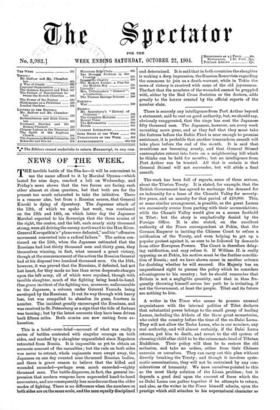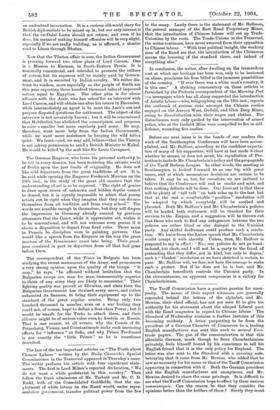A writer in the Times who seems to possess unusual
acquaintance with the internal politics of Tibet declares that substantial power belongs to the small group of leading Lamas, including the Abbots of the three great monasteries, who ruled the country before the time of the ex-Dalai Lama. They will not allow the Teshu Lama, who is our nominee, any real authority, and will almost certainly, if the Dalai Lama returns, put him to death, and revert to the old system of choosing child after child to be the reincarnate head of Tibetan Buddhism. Their policy will then be to restore the old seclusion, and take no orders, either from their Chinese suzerain or ourselves. They can carry out this plan without directly breaking the Treaty; and though it involves syste- matic assassinations, they will not be restrained by any con- siderations of humanity. We have ourselves pointed to this as the most likely solution of the Lhasa problem ; but it depends a good deal upon the amount of force which the ex-Dalai Lama can gather together if he attempts to return, and also, as the writer in the Times himself admits, upon the prestige which still attaches to his supernatural character as an undoubted incarnation. It is a curious old-world story for British diplomatists to be mixed up in; but our only interest is that the ex-Dalai Lama should not return; and even if he does, his means of making himself offensive will be very slight, especially if we are really building, as is affirmed, a shorter road to Lhasa through Bhutan.











































